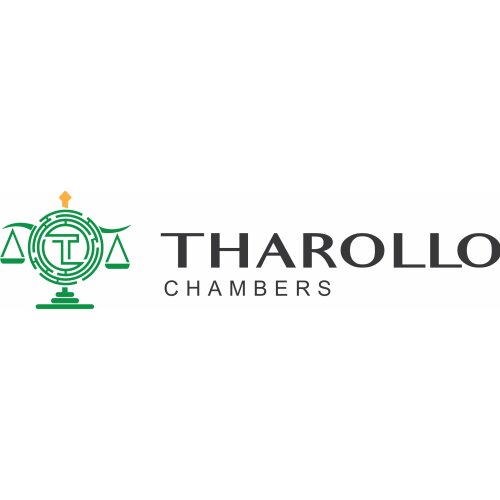Best Retirement Lawyers in Lesotho
Share your needs with us, get contacted by law firms.
Free. Takes 2 min.
Or refine your search by selecting a city:
List of the best lawyers in Lesotho
About Retirement Law in Lesotho
Retirement law in Lesotho is designed to govern the circumstances under which individuals stop working in their senior years and the entitlements they can claim post-retirement. This involves understanding pension schemes, retirement benefits, taxation on pensions, and legal rights concerning retirement funds. In Lesotho, both public and private sectors may offer retirement plans, and regulations ensure their proper administration and compliance.
Why You May Need a Lawyer
Individuals may need a lawyer specializing in retirement law for several reasons. Firstly, understanding the complexity of retirement benefits, especially when dealing with multiple pension schemes, can be daunting. Legal assistance is also crucial when there are disputes over pension entitlements, changes in pension agreements, or if there is a need to pursue claims for unpaid benefits. Furthermore, legal counsel can be essential in estate planning to ensure that assets and retirement benefits are managed according to the retiree’s wishes.
Local Laws Overview
Retirement laws in Lesotho focus on the regulation of pension schemes and the rights of retirees. Key aspects include:
- Pension Fund Regulation: Specific laws govern the management, investments, and distribution of pension fund assets to ensure transparency and protection of the beneficiaries.
- Retirement Age: The statutory retirement age may influence pension payout rules and the period over which benefits are calculated.
- Taxation: Regulations regarding the taxation of retirement benefits and income earned through pensions.
- Social Security: Interaction with national social security schemes, which provide basic old-age security for retirees.
Frequently Asked Questions
What is the official retirement age in Lesotho?
The official retirement age can vary depending on the specific pension scheme, though it commonly aligns with ages set by the government for public service employees.
Are pensions in Lesotho taxable?
Yes, pensions can be subject to taxation; however, the specific tax obligations depend on current taxation laws and the retiree's total income.
Can I withdraw my pension funds early?
Early withdrawal may be possible but could incur penalties or reduced benefits based on the terms of the pension plan and applicable laws.
What should I do if my pension is not being paid?
If facing delays or issues in pension payments, seeking legal advice to ensure your rights are protected and pursuing formal complaints through relevant pension authorities is advisable.
How can I plan effectively for retirement?
Effective planning involves understanding your benefits, consulting financial planners, and ensuring your pension scheme aligns with your financial goals and needs.
What happens to my pension if I pass away?
Pension schemes typically have provisions for dependents or designated beneficiaries. Legal assistance can help navigate any complexities involved in these matters.
Can foreigners contribute to pension schemes in Lesotho?
This depends on specific employment conditions and agreements. Legal advice is recommended to understand eligibility and contribution limits.
How are pension funds protected in Lesotho?
Pension funds are regulated by laws ensuring their secure management, but it is crucial to understand the specific protection mechanisms of your plan.
Do I need to contribute to a pension plan if I am self-employed?
Self-employed individuals may not be automatically enrolled in a pension scheme and might need to initiate personal or private pension plans.
Who manages pension funds in Lesotho?
Pension funds can be managed by government bodies, private companies, or other licensed financial institutions, each following regulatory compliance as stipulated by Lesotho law.
Additional Resources
For further assistance, consider reaching out to:
- Ministry of Finance: Provides information on pensions and retirement laws.
- Social Security Commission: Offers guidance on national social security and its interaction with individual retirement plans.
- Legal Aid Clinics: Can provide free or affordable legal consultations for retirees seeking assistance.
- Pension Fund Administrators: Offer insights and management for company-specific pension schemes.
Next Steps
If you need legal assistance concerning retirement in Lesotho, consider taking the following steps:
- Consult a lawyer specializing in retirement and pension law to assess your situation and provide tailored advice.
- Gather all relevant documents, including your pension plan details, employment records, and previous correspondence, which might influence your legal standing.
- Reach out to relevant pension authorities or fund administrators to clarify any specific concerns or discrepancies in your pension plan.
- Consider attending retirement planning seminars or financial education workshops to enhance your understanding of retirement planning and legal considerations.
Lawzana helps you find the best lawyers and law firms in Lesotho through a curated and pre-screened list of qualified legal professionals. Our platform offers rankings and detailed profiles of attorneys and law firms, allowing you to compare based on practice areas, including Retirement, experience, and client feedback.
Each profile includes a description of the firm's areas of practice, client reviews, team members and partners, year of establishment, spoken languages, office locations, contact information, social media presence, and any published articles or resources. Most firms on our platform speak English and are experienced in both local and international legal matters.
Get a quote from top-rated law firms in Lesotho — quickly, securely, and without unnecessary hassle.
Disclaimer:
The information provided on this page is for general informational purposes only and does not constitute legal advice. While we strive to ensure the accuracy and relevance of the content, legal information may change over time, and interpretations of the law can vary. You should always consult with a qualified legal professional for advice specific to your situation.
We disclaim all liability for actions taken or not taken based on the content of this page. If you believe any information is incorrect or outdated, please contact us, and we will review and update it where appropriate.
Browse retirement law firms by city in Lesotho
Refine your search by selecting a city.












